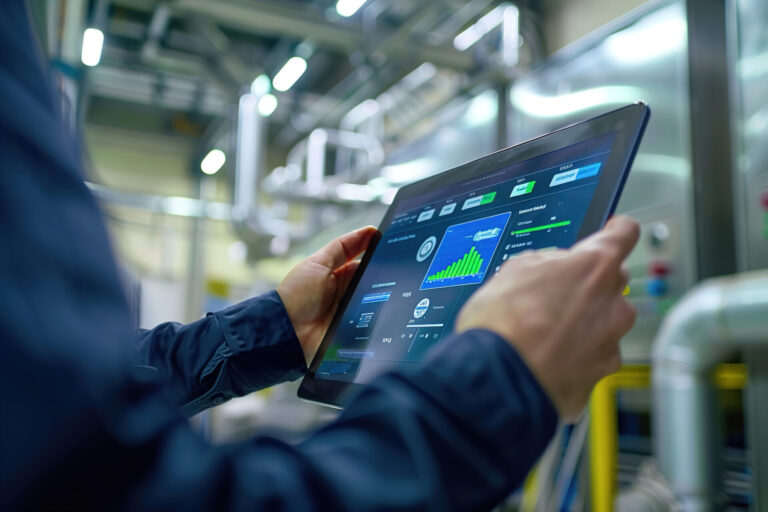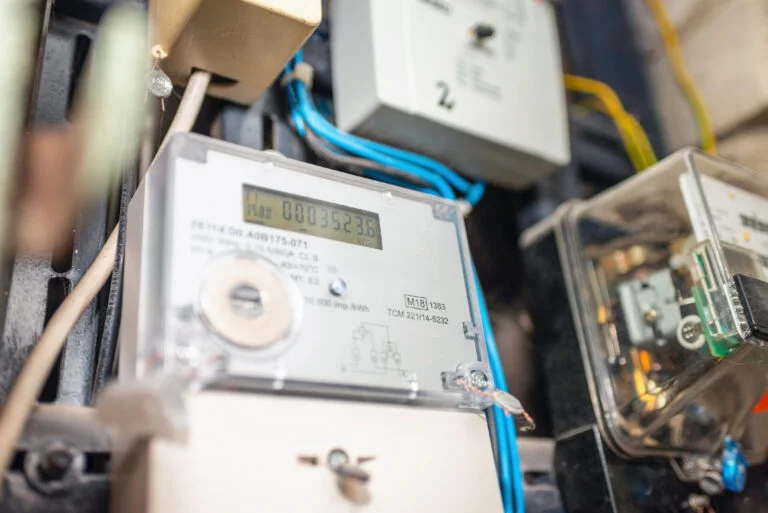At BP Consulting, we understand that the manufacturing sector must navigate an increasingly complex landscape of rising energy costs and increasing environmental regulation, resulting in effective energy management becoming a focal point for success. Manufacturers are not only seeking ways to cut energy expenses, but are also aiming to enhance sustainability practices in order to meet consumer expectations and regulatory demands such as the Streamlined Energy and Carbon Reporting (SECR).
In this blog, we will explore key strategies for energy management that can help manufacturers thrive in the volatile energy industry. From leveraging advanced technologies like Internet of Things (IoT) devices to adopting renewable energy solutions such as Solar PV, we’ll discuss how these approaches can lead to significant cost savings and reduced carbon footprints.
IoT Devices To Prevent Wasted Energy
The Internet of Things (IoT) offers manufacturers a powerful tool for enhancing energy management and operational efficiency. By integrating IoT devices into their systems, manufacturers can gain real-time insights into energy consumption, enabling them to identify inefficiencies and optimise usage. For instance, smart sensors can monitor machinery performance and automatically shut down equipment when not in use, significantly reducing energy waste. IoT technology also facilitates predictive maintenance, allowing manufacturers to address potential issues before they lead to costly downtime.
Synergy With Energy Purchasing Strategies
Plus, the data collected from IoT devices can be seamlessly integrated with an energy purchasing strategy to help manufacturers optimise their energy procurement. By utilising real-time analytics from IoT systems, manufacturers can accurately track their energy consumption patterns, identifying peak usage times and understanding when their demand is highest. This insight allows them to adjust their operational schedules and shift energy-intensive activities to off-peak hours when electricity rates are lower.
Additionally, the predictive capabilities of IoT devices enable manufacturers to forecast energy needs more effectively, allowing for smarter contract negotiations. By aligning their purchasing strategies with data-driven insights, manufacturers can secure more favourable rates and minimise costs.
Ultimately, combining IoT data with a strategic energy purchasing approach not only drives down energy costs, but also fosters a more sustainable manufacturing operation. This synergy empowers manufacturers to make informed decisions, reduce their reliance on non-renewable sources, and actively contribute to a more sustainable energy ecosystem.
Reporting Tools To Aid With Compliance
In the realm of energy management, robust reporting tools are essential for manufacturers to ensure compliance with the Streamlined Energy and Carbon Reporting (SECR) regulations. These tools facilitate accurate tracking and documentation of energy consumption and carbon emissions, providing manufacturers with the necessary data to meet governmental reporting requirements.
By utilising advanced reporting software, manufacturers can automate the collection and analysis of energy data, streamlining the reporting process and reducing the risk of errors. This not only helps in maintaining compliance but also enables manufacturers to gain valuable insights into their energy usage patterns. Understanding these patterns can drive informed decisions to improve efficiency and reduce costs. Furthermore, transparent reporting builds trust with stakeholders and demonstrates a commitment to sustainability, enhancing a manufacturer’s reputation in an increasingly eco-conscious market. In essence, effective reporting tools are a vital component of a comprehensive energy management strategy, ensuring compliance while supporting continuous improvement in energy efficiency.
In an era marked by rising energy costs and increasing environmental scrutiny, effective energy management strategies are essential for manufacturers striving for both operational efficiency and sustainability. By embracing advanced technologies, such as IoT, implementing smart energy purchasing strategies, and utilising robust reporting tools, manufacturers can not only reduce their energy expenditures but also enhance their compliance with regulations such as SECR. These strategies collectively empower manufacturers to make data-driven decisions that optimise energy usage and contribute to a more sustainable future. As the industry continues to evolve, those who prioritise energy management will not only thrive amidst challenges but will also position themselves as leaders in the transition toward a greener economy. By taking proactive steps today, manufacturers can secure their success for tomorrow while positively impacting the environment and meeting the expectations of stakeholders and consumers alike.
If you want to learn more about how we can help your manufacturing organisation implement these solutions, contact us now.






